[gview file=”http://blogs.dickinson.edu/food-experience/files/2020/02/Celtic-Knot-Farms-Presi-1.pptx”]
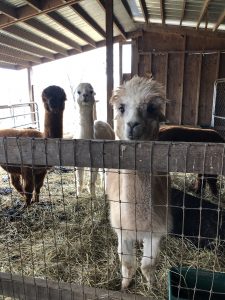
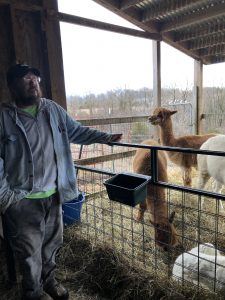
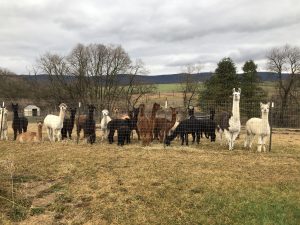
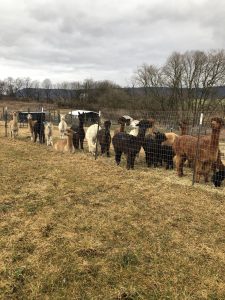
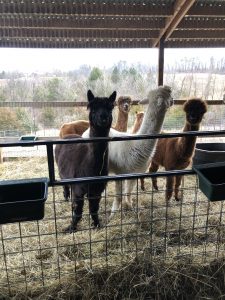
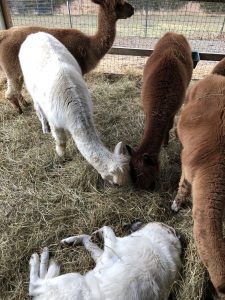
This past week I visited Russell Jones at the Celtic Knot Alpaca farm which is right down the road about 10 minutes from campus. Russ runs the farm with his sister Rebecca Jones and they have a pack of 40 alpacas with 1 Llama, for protection. Russ primarily runs the day to day operations on the farm. All of the animals are raised for their wool only. Russ was mainly discussing the business aspects of his operation such as how he processes the wool as well as the co-ops that Celtic Knot are a part of in order to maintain as close to profitiability as possible.
Russ seemed particularly prideful about the fact that the Jones family produces their final product from start to finish and it is all hand-made, however this makes the products slightly more expensive than imported products which Russ mentioned was one of the difficulties of running the business-side of the farm. However I was thought it was particularly unique that for every animal that is on the farm, there is carefully documented genetic information to prove that all of the animals were raised by Russ, and to the genetics of their color.
One of the most major obstacles that the farm faces is the zoning of the piece of land that the family owns. Russ would like to expand his fenced in pastures, yet there is a marsh that flows into a creek that divides part of the property. Russ continued to explain that this particular creek is under a reforestation program through the State, therefore it limits what he can do to his own land. However, the land nearest to this creek turns out to be shale which he commented makes it nearly impossible to plant anything. This creek also requires Russ to have a bridge on his property to transport the herd to different pastures as well as a bridge strong enough to hold a tractor. These are some of the main issues Russ faces when planning for the future especially increasing the size of the herd to increase profitability.
Lastly, Russ discussed at length the fact that Alpacas and Llamas are very low maintenance animals to farm which makes them so popular especially in this area for farming enthusiasts. The animals are relatively low cost, relatively healthy, and even quiet (unless a predator is present). I was previously unaware that in the surrounding counties, there are probably 20-30 alpaca herds, Russ’s being the largest. Considering this fact, it allows Russ to make extra business by shearing for other farms and even purchasing wholesale fibers that small herd owners cannot really use because of the small amount. Russ uses the wholesale fibers to blend in with his own, (if the fibers are similar enough) to make the threshold weight at a mechanized processor.
I did not know much about Alpacas before this but Russ was beyond welcoming, informative, and knowledgeable. Celtic Knot Farms seems to run a tight-ship and all of the animals themselves were friendly and clean. Russ also has various cats roaming the farm that have helped socialize the Alpacas along with a big dog that lives with the males. The Llama in the pack of females (Sadie) is for protection, hence her large size, from predators such as coyotes. The dog with the males usually acts as protection, but Russ said that the males are typically aggressive towards natural predators and thus he worries about them less.
Leave a Reply